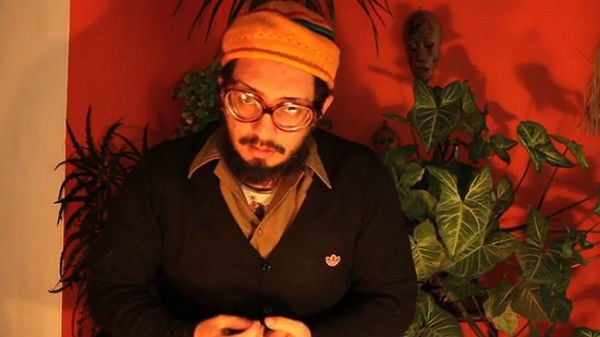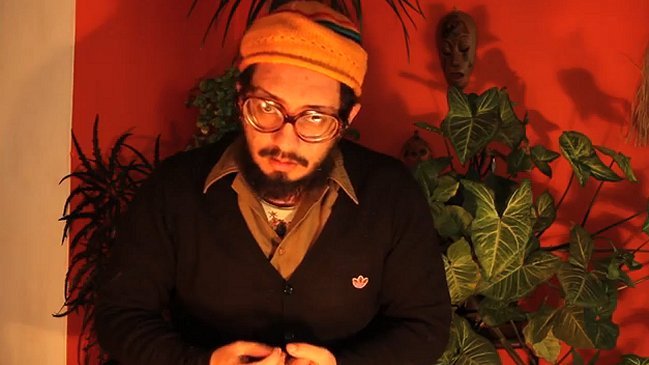Art World
Chilean Artist Literally Ignites Debate Over Student Debt


Ben Davis


Papas Fritas’s video confession.
Student debt is a hot issue in the United States. In Chile, with some of the highest student debt rates in the world, it’s literally incendiary.
With students in full revolt against the privatized education system, a video clip from anarchic Chilean activist artist Francisco Tapia, aka “Papas Fritas,” has caused a national sensation. Or more specifically, what has caused the uproar is the claim that the artist makes, that the central contents of his latest installation, Ad Augusta per Angusta (Latin for “through difficulties to honor”) at Santiago-based Centro Cultural Gabriela Mistral, consisted of the incinerated ashes of student debt papers worth the equivalent of $500 million. The clip, which was also part of the show, hit the Internet one week ago. On Thursday, police raided the show, confiscating the box of ashes.
La Segunda newspaper is calling Papas Fritas “El agitador cultural del momento” (the cultural agitator of the moment), contextualizing his work as a contemporary spin on happenings and Situationism. In the past, his art has included showing counterfeit coins made of “pasta base” (a highly addictive cocaine paste) at Galería Metropolitana in Santiago in 2012, while at the Museo Nacional de Bellas Artes’s Sexta Bienal de Arte Contemporáneo in 2008, he tattooed his own back with the logo of the institution, then asked audience members to beat him with a whip, paying 100 pesos (about 20 cents) a lash or 1,000 to spit on him (or about a $1.80).
In his video confession about the burning of the student debt papers, Papas Fritas says he was looking to do something that went “beyond a performance,” and passionately talks about the power of art to change life. “Perhaps some of you will be questioning whether this is real or fake,” he says at one point. “No—it’s no lie.”
The documents were supposedly taken during a student occupation of Universidad del Mar, a private institution that was shuttered last year amid controversies over its finances. What exact effect their destruction might have is unclear.
As for the legal fallout, the English-language Santiago Times explains: “Legal counsel for Tapia note that Chilean law calls for a one to five year jail term for stealing property in an unoccupied space, but that Tapia’s self-admission for his criminal activity opens the door for probationary sentencing that could result in zero jail time for the artist. Alternatively, attorneys representing Universidad del Mar’s beleaguered students are seeking to void all the loan contracts signed by students, arguing that the contracts were fraudulent in origin.”